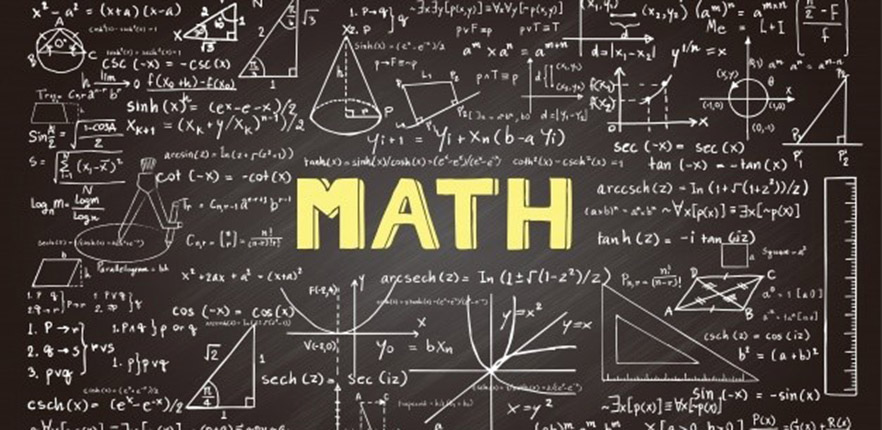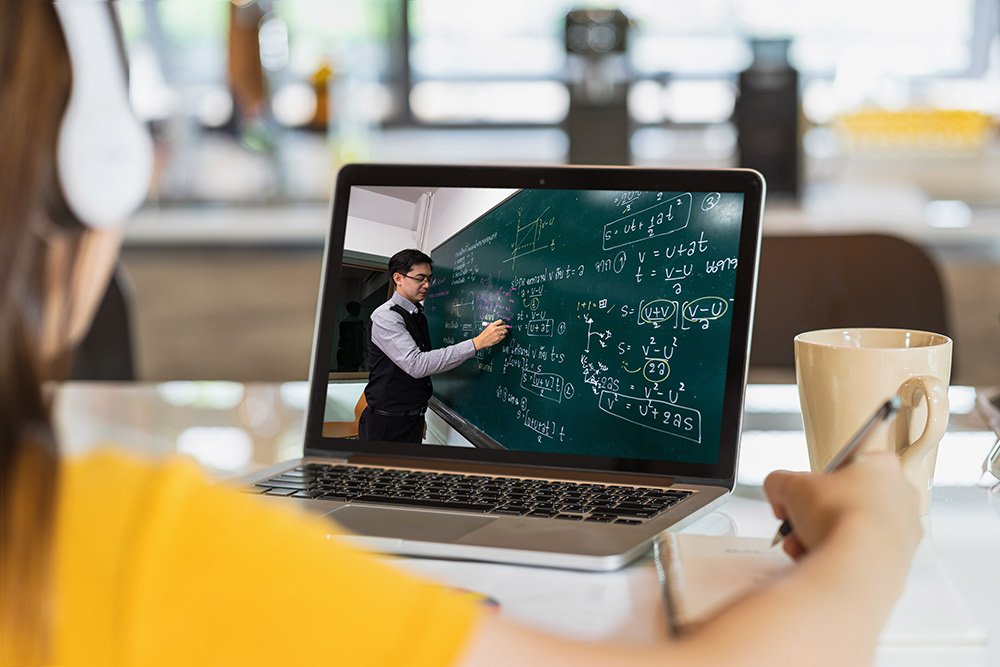Why Every Math Tutoring Program Should Share Student Success Stories
Wiki Article
The Role of Student Success Stories in Highlighting the Benefits of Russian Mathematics for Learners
Pupil success stories offer as compelling evidence of the benefits supplied by Russian mathematics education and learning. These narratives often show exactly how organized approaches lead to considerable enhancements in analytical abilities and important thinking. Ivan's excellent abilities and Maria's change from struggling student to competition winner exhibit this influence. Such achievements question regarding the wider ramifications of these experiences. What can be discovered from these stories, and just how might they influence future learners?Understanding the Structures of Russian Math
Although typically shrouded in intricacy, the structures of Russian mathematics are rooted in an unique educational viewpoint that stresses vital and analytical thinking. This method focuses on deep understanding over rote memorization, urging students to engage with mathematical concepts proactively. The curriculum is structured to foster logical skills, typically integrating academic principles with useful applications. Educators play an essential function, employing techniques that test students to explore different analytical techniques and work together with peers.Central to this academic model are strenuous requirements and a solid emphasis on sensible reasoning, which cultivates resilience and versatility amongst students. The focus on fundamental principles enables pupils to construct a solid mathematical structure, furnishing them with tools to take on complex issues. This rigorous training not only prepares trainees for advanced research in maths but additionally imparts a long-lasting appreciation for the self-control, shaping their ability to believe critically in varied contexts.Highlighting Individual Success Stories
Success tales in Russian mathematics commonly exhibit the efficiency of the country's rigorous educational structure. As an example, a young student called Ivan showcased exceptional analytic abilities after joining a neighborhood Russian math program. His capability to deal with intricate mathematical ideas at a very early age attracted the attention of instructors and peers alike. Maria, another student, proceeded from struggling with fundamental math to winning local math competitions within a year, highlighting the transformative potential of this academic approach.These individual narratives offer as effective endorsements to the advantages of Russian mathematics, illustrating how structured techniques and a deep focus on foundational skills can lead to considerable scholastic achievements. The experiences of trainees like Ivan and Maria not just influence their peers however additionally strengthen the value of a robust mathematical education and learning. Their success stories resonate with parents looking for reliable knowing courses for their youngsters, better promoting the allure of Russian mathematics
The Influence of Conceptual Recognizing on Learning
When pupils create a strong theoretical understanding of mathematics, they are better geared up to use their knowledge to solve complex troubles. This understanding acts as a structure that makes it possible for learners to make connections in between various mathematical concepts, promoting deeper cognitive engagement. In Russian mathematics programs, focus on theoretical knowing supports an attitude that values understanding over rote memorization. Students are encouraged to explore underlying concepts, which improves their ability to reason and assume seriously. This technique not only help retention however additionally empowers learners to adjust their understanding to unique situations. In addition, a solid theoretical understanding of mathematics can result in increased self-confidence, as students locate themselves efficient in tackling difficult material. As they identify the relationships in between concepts, they come to be more proficient at discussing their believed procedures, even more solidifying their understanding. Inevitably, a concentrate on theoretical understanding in mathematics education and learning considerably boosts the overall discovering experience for trainees.Enhancing Problem-Solving Skills Via Real-Life Applications

Structure Confidence and Strength in Students
Confidence and durability are important attributes that encourage trainees to navigate the obstacles of finding out mathematics. The Russian Mathematics approach highlights problem-solving and important thinking, cultivating a favorable knowing setting where trainees are urged to tackle hard concepts. As they involve with complex troubles, students create a sense of success that increases their self-esteem. Effective conclusion of tough tasks strengthens their belief in their capabilities, making them more happy to take threats in future mathematical endeavors.Moreover, the iterative nature of Russian Mathematics encourages perseverance. They are instructed to see these minutes as possibilities for development instead than failings when students experience problems. This frame of mind grows strength, enabling them to recover and proceed seeking understanding. By honing these attributes, recommended you read trainees not just excel in mathematics however additionally get beneficial life skills, preparing them for difficulties past the class.Contrasting Traditional Math Approaches With Russian Math

Showing Technique Differences
Numerous instructors identify considerable distinctions between standard math mentor approaches and the Russian technique, which stresses theoretical understanding and analytic. Traditional techniques typically concentrate on memorizing memorization and step-by-step jobs, focusing on quick computations over deep understanding. In contrast, Russian math urges students to discover mathematical ideas with a variety of strategies, fostering essential reasoning and creativity. This approach often entails joint understanding, where trainees function together to discuss services and concepts. Additionally, Russian math integrates real-world applications, making mathematical principles a lot more relatable and appealing for students. These distinctions highlight the unique staminas of the Russian strategy, which aims not only to educate math skills but additionally to develop a solid mathematical attitude that can be applied across numerous contexts.Problem-Solving Approaches
While conventional math methods continue reading this often stress detailed procedures to reach services, Russian mathematics prioritizes a more holistic method to analytic. This approach motivates trainees to explore multiple methods, cultivating imagination and important thinking. In traditional settings, trainees might rely heavily on memorization and procedural understanding, commonly causing a slim understanding of ideas. Alternatively, Russian mathematics promotes deep understanding, permitting learners to connect mathematical concepts to real-world applications. By providing troubles in diverse contexts, Russian mathematics challenges trainees to assume outside the box and develop flexible reasoning skills. This divergence in strategies not just improves problem-solving abilities yet likewise constructs resilience in students, equipping them to take on intricate challenges with confidence and innovation.Encouraging a Lifelong Love for Learning in Mathematics
Although maths usually evokes stress and anxiety in pupils, cultivating a real interest for the subject can transform their instructional experience. The Russian Mathematics approach stresses understanding principles instead of rote memorization, encouraging inquisitiveness and expedition. By involving trainees in tough yet satisfying analytic tasks, they develop a deeper gratitude for maths as a vibrant field.Success stories from learners highlight how this approach supports an interest for useful site discovering, resulting in a more profound connection with mathematical ideas. These narratives highlight the value of determination and creative thinking, demonstrating that mathematics is not just a subject yet a tool for critical thinking and real-world application.As trainees experience and conquer difficulties, they develop resilience, reinforcing the concept that understanding is a long-lasting journey. This point of view inspires them to pursue more researches in maths and relevant fields, inevitably growing a generation of passionate, positive mathematicians.Regularly Asked Questions
What Age Team Conveniences The Majority Of From Russian Math Programs?
The age that benefits most from Russian math programs usually varies from early elementary to intermediate school. This duration cultivates vital reasoning and analytical abilities, vital for grasping innovative mathematical ideas in subsequent educational phases.Exactly How Can Parents Support Their Kid in Russian Mathematics?
Moms and dads can support their youngsters in Russian mathematics by giving a conducive learning setting, motivating constant method, involving with trainers for understandings, promoting a favorable mindset in the direction of challenges, and celebrating accomplishments to enhance self-confidence and inspiration.Exist Online Resources for Russian Math Learners?
Numerous on-line resources exist for Russian mathematics learners, consisting of interactive platforms, instructional video clips, and online forums. These devices boost understanding and interaction, giving students with varied discovering possibilities to strengthen their mathematical abilities successfully.What Certifications Do Russian Mathematics Instructors Typically Have?
Typically, Russian math trainers possess postgraduate degrees in maths or education and learning. Several have substantial mentor experience and are learnt specific methodologies that stress analytic, vital thinking, and a deep understanding of mathematical principles.How Does Russian Math Accommodate Different Learning Styles?
Russian mathematics suits different knowing designs via varied training techniques, promoting analytical reasoning and analytical abilities. Instructors make use of aesthetic help, hands-on activities, and joint exercises, making certain pupils engage with mathematical concepts in manner ins which resonate with their specific preferences. A young trainee named Ivan showcased exceptional analytical skills after taking part in a neighborhood Russian math program. Maria, an additional pupil, advanced from struggling with basic math to winning regional mathematics competitions within a year, highlighting the transformative capacity of this academic approach.These private stories serve as powerful testimonials to the advantages of Russian mathematics, highlighting just how structured approaches and a deep focus on fundamental skills can lead to significant scholastic success. The Russian Math approach emphasizes analytic and critical reasoning, fostering a favorable discovering environment where students are motivated to take on difficult concepts. In contrast, Russian math encourages pupils to discover mathematical ideas via a selection of strategies, cultivating important thinking and imagination. By providing issues in diverse contexts, Russian math challenges trainees to think outside the box and establish flexible thinking abilities.Report this wiki page